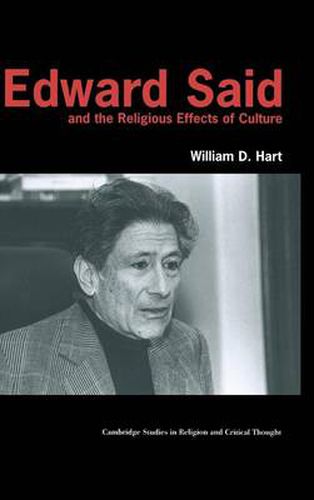Readings Newsletter
Become a Readings Member to make your shopping experience even easier.
Sign in or sign up for free!
You’re not far away from qualifying for FREE standard shipping within Australia
You’ve qualified for FREE standard shipping within Australia
The cart is loading…






This book provides a distinctive account of Edward Said’s critique of modern culture by highlighting the religion-secularism distinction on which it is predicated. This distinction is both literal and figurative. It refers, on the one hand, to religious traditions and to secular traditions and, on the other hand, to tropes that extend the meaning and reference of religion and secularism in indeterminate ways. The author takes these tropes as the best way of organizing Said’s heterogeneous corpus - from Joseph Conrad and the Fiction of Autobiography, his first book, to Orientalism, his most influential book, to his recent writings on the Palestinian question. The religion-secularism distinction, as an act of imagination and narrative continuity, lies behind Said’s cultural criticism, his notion of intellectual responsibility, and his public controversy with Michael Walzer about the meaning and the uses of the Exodus story and about the question of Palestine.
$9.00 standard shipping within Australia
FREE standard shipping within Australia for orders over $100.00
Express & International shipping calculated at checkout
This book provides a distinctive account of Edward Said’s critique of modern culture by highlighting the religion-secularism distinction on which it is predicated. This distinction is both literal and figurative. It refers, on the one hand, to religious traditions and to secular traditions and, on the other hand, to tropes that extend the meaning and reference of religion and secularism in indeterminate ways. The author takes these tropes as the best way of organizing Said’s heterogeneous corpus - from Joseph Conrad and the Fiction of Autobiography, his first book, to Orientalism, his most influential book, to his recent writings on the Palestinian question. The religion-secularism distinction, as an act of imagination and narrative continuity, lies behind Said’s cultural criticism, his notion of intellectual responsibility, and his public controversy with Michael Walzer about the meaning and the uses of the Exodus story and about the question of Palestine.